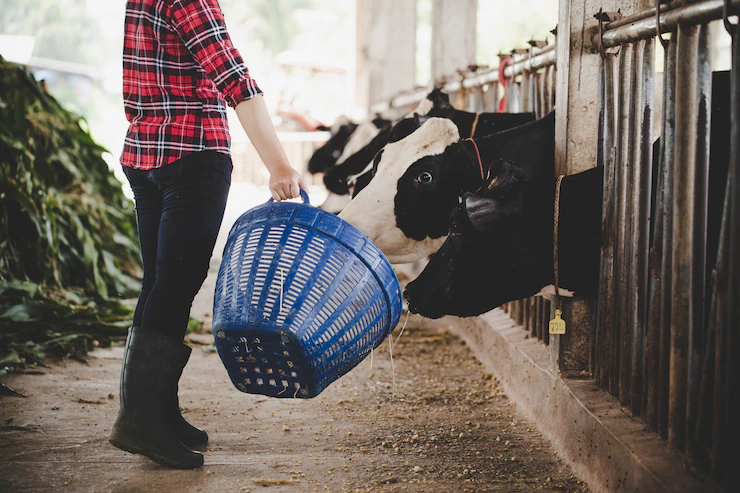When it comes to animal husbandry and raising healthy livestock in South Africa, there are several best practices to consider. Here are some key points to keep in mind:
- Adequate Housing: Provide appropriate housing and shelter for your livestock. Ensure that the housing is well-ventilated, clean, and offers protection from extreme weather conditions. Proper spacing and comfortable bedding are essential for the well-being of the animals.
- Nutritious Feed: Feed your livestock a balanced and nutritious diet suitable for their specific requirements. Consult with a veterinary nutritionist to formulate a feed plan that includes a mix of forage, concentrates, and supplements. Adequate access to clean and fresh water is also crucial.
- Pasture Management: If you have grazing animals, implement good pasture management practices. Rotate pastures to prevent overgrazing and allow for proper regrowth. This helps prevent the depletion of essential nutrients from the soil and minimizes the risk of parasites and diseases.
- Disease Prevention and Control: Develop a comprehensive vaccination and deworming program in consultation with a veterinarian. Regularly vaccinate livestock against common diseases prevalent in South Africa. Practice biosecurity measures to prevent the introduction and spread of diseases within your farm.
- Hygiene and Sanitation: Maintain cleanliness and proper sanitation in livestock housing, feed storage areas, and water sources. Regularly clean and disinfect equipment and facilities to prevent the spread of diseases.
- Veterinary Care: Establish a good relationship with a local veterinarian who can provide regular check-ups, preventive healthcare, and prompt treatment in case of illness or injury. Regular veterinary inspections can help identify and address any potential health issues early on.
- Stress Reduction: Minimize stress factors that can negatively impact the health of your livestock. Handle animals gently and avoid sudden changes in their environment or routine. Provide adequate space for animals to move and express natural behaviors.
- Record Keeping: Maintain detailed records of animal health, vaccination schedules, treatments, and any significant observations. These records can help track the health history of individual animals, identify trends, and make informed management decisions.
- Training and Education: Stay updated with the latest research, best practices, and advancements in animal husbandry. Attend workshops, seminars, and training programs to enhance your knowledge and skills in raising healthy livestock.
- Compliance with Regulations: Familiarize yourself with the relevant laws and regulations pertaining to animal husbandry in South Africa. Ensure compliance with animal welfare standards, permits, and any restrictions or guidelines set by the authorities.
Remember that each livestock species has specific requirements, so it’s important to adapt these best practices to the particular needs of the animals you are raising. Additionally, seek guidance from local agricultural extension services, veterinary professionals, and experienced farmers in your area for further advice tailored to the specific conditions in South Africa.
Join 'Farmers Mag' WhatsApp Channel
Get the latest Farming news and tips delivered straight to your WhatsApp
CLICK HERE TO JOIN






